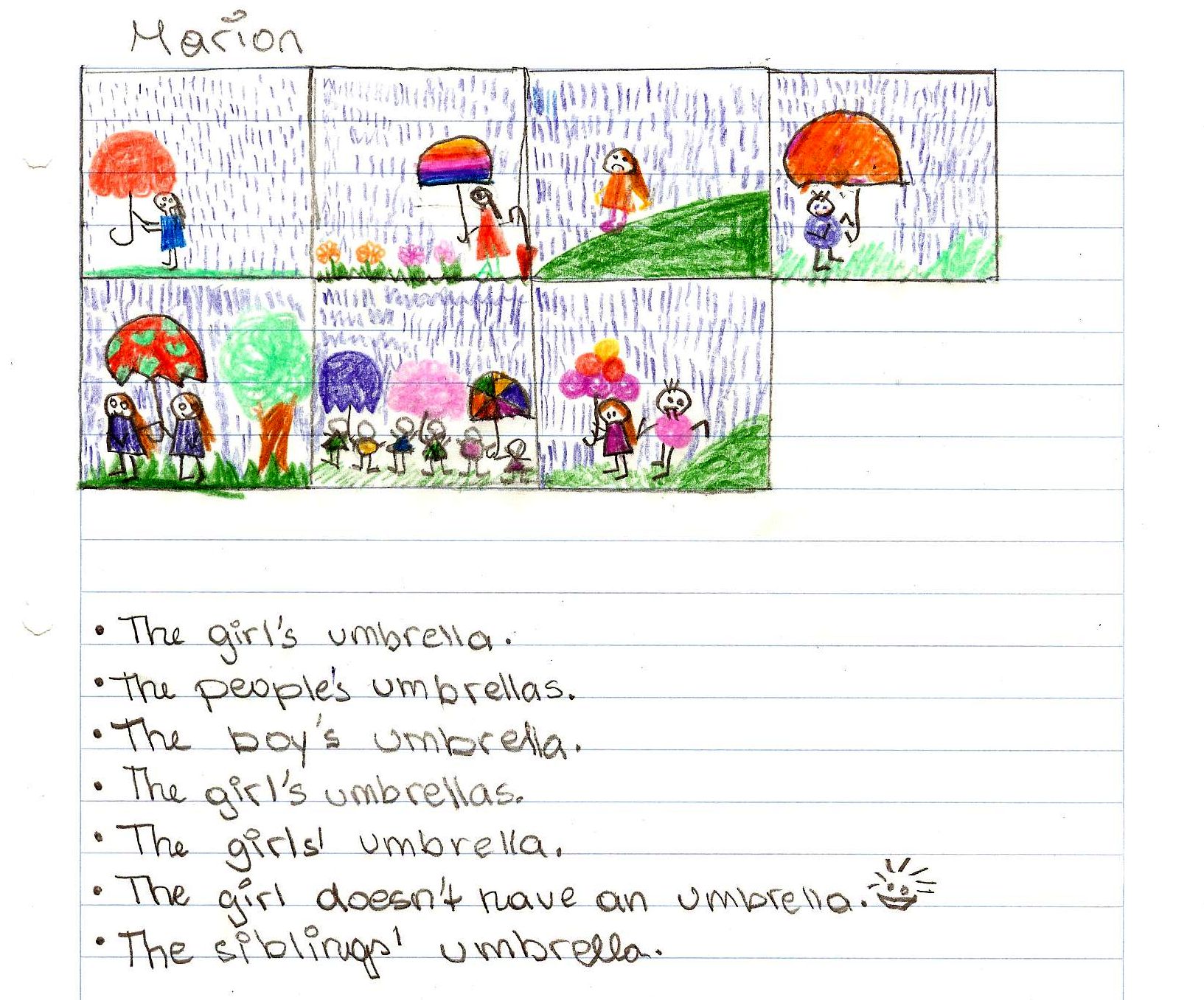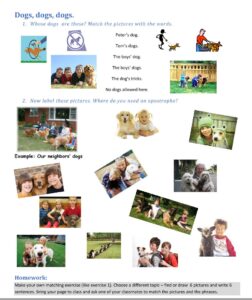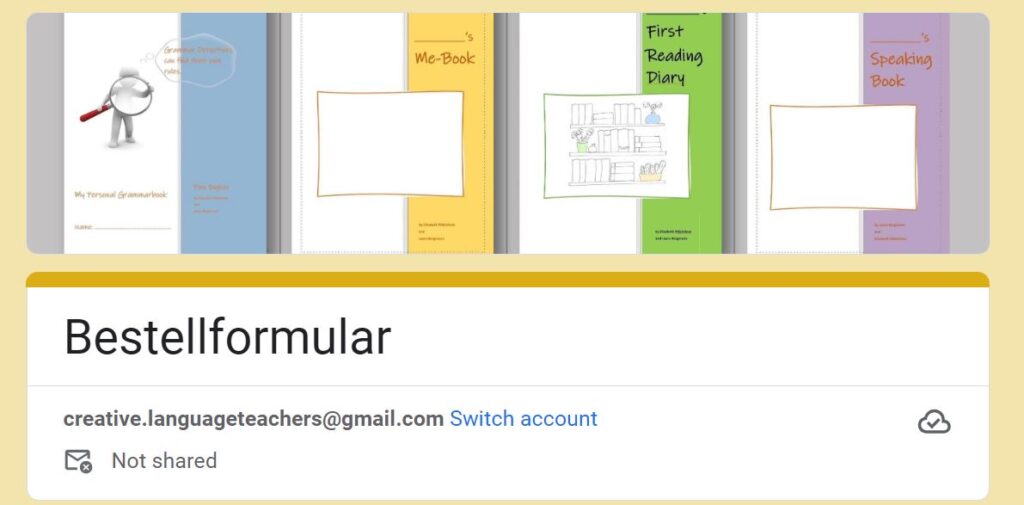Mixed practice for beginners
Elementary: Asking simple questions
Find someone who (2 levels of complexity)
At this level the learners need basic communicative drills that “wash” the new phrases into their brains.
Just be careful: communicative drills must be meaningful and talk about the real world around us. Decontexualized sentences and gap-fills are NOT as efficient.
Expressing possession
Where do we put the apostrophe?
I like to ask learners to create their own exercises according to the following samples. This helps them focus on the difference between singular and plural forms and the correct position of the apostrophe to express possession.

More examples created by year 1 students
Here you can play an online version based on cards produced by year 1 learners.
Adverbs of frequency: Sometimes, always, never, rarely, often…
In the following board-game learners practice the use of these adverbs. Since the position of the adverb is given by the task it cannot go wrong and the learners develop a feeling for the right position in the sentence. In this game the learners are asked to produce TRUE sentences about their classmates. This makes the exercise more interesting and meaningful and helps the learners link grammar to the real world. Click on the image to open the full-size file.
Irregular Verbs
When learning irregular verbs it is really important to practice them aloud — it’s the right SOUND that the learners need to remember.
These irregular verbs RAPS are a fun way to practice the irregular verb forms. First we watch some of the verbs raps online (see below). Then my learners choose a number of irregular verbs from lists and produce their own raps in small groups. We post them on Moodle so all the other kids can see them and vote for the best ones. By watching all the raps they get more practice and exposure to the correct forms.
We start by watching these:
Then the kids produce their own raps.
| In the following video we are practicing irregular verbs in class |



